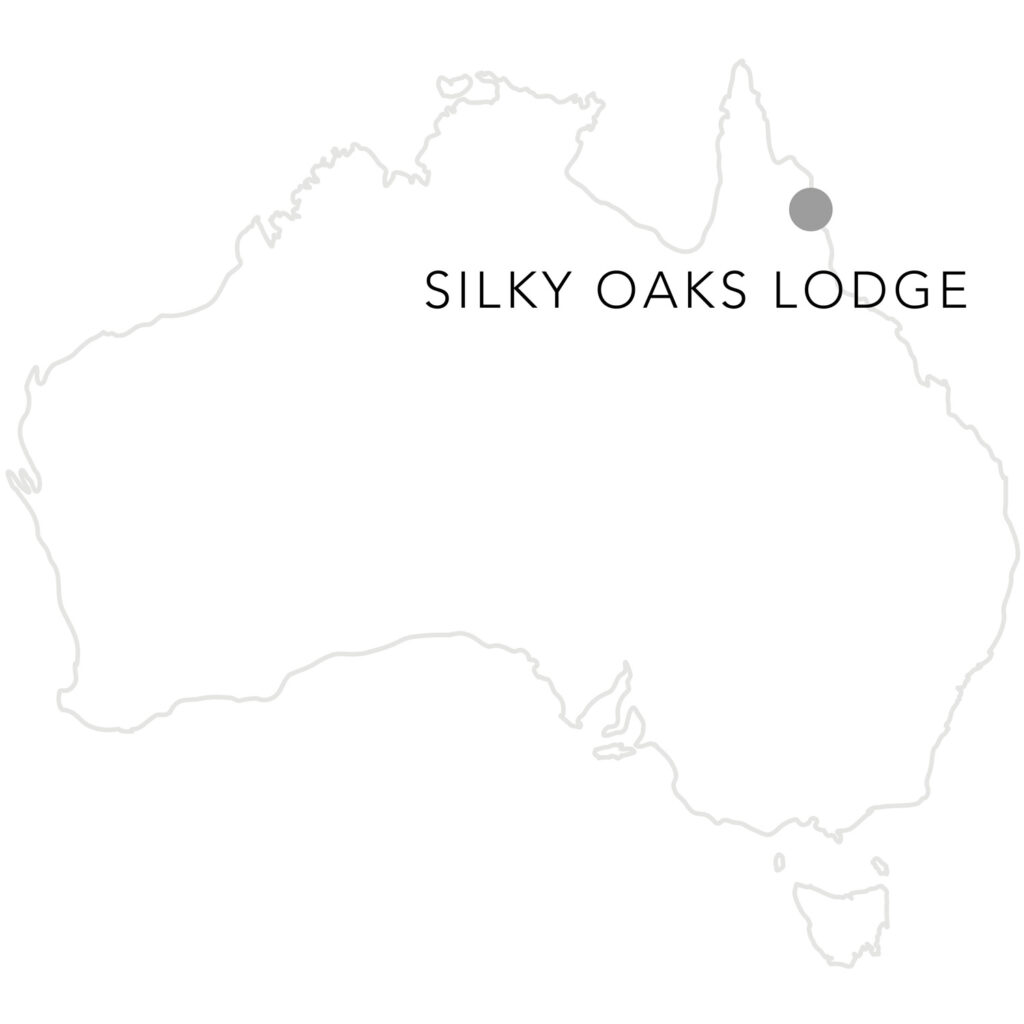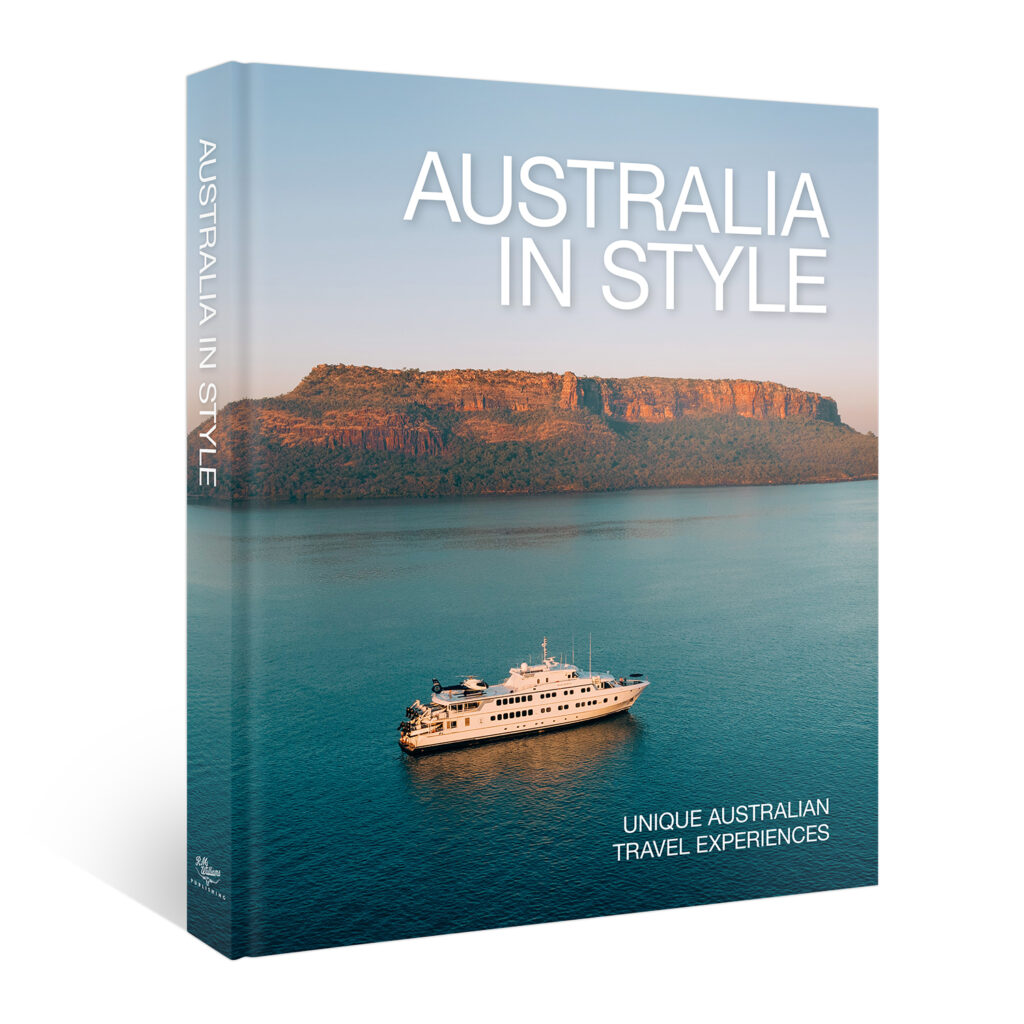Climb down from your treehouse suite, wander a few metres into the Daintree Rainforest, and you could be forgiven for thinking Silky Oaks Lodge wasn’t there at all. The world’s oldest tropical rainforest has a way of swallowing everything, including itself. Strangler figs wrap their tendrils around host trees, devouring them whole. Wait-a-while vines cling to the trunks of golden penda trees, and giant basket ferns nestle into the nooks of hickory ash. The towering canopy casts a ghostly green filter, with shards of sunlight spotlighting the brilliant blue wings of Ulysses butterflies flittering through the understorey. Breathe it in and let it out …
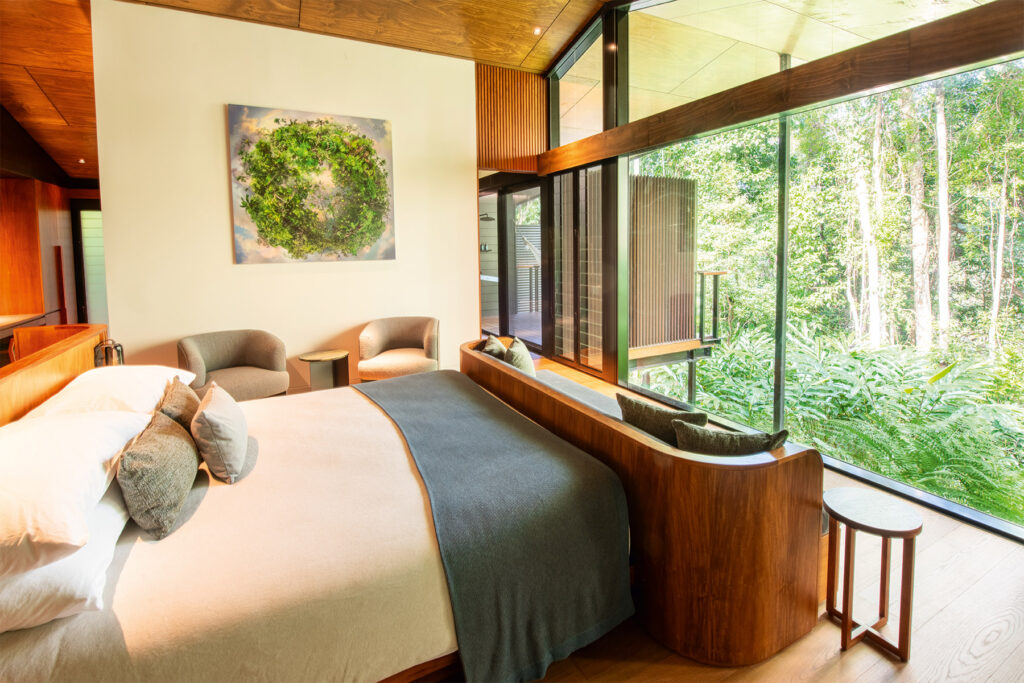
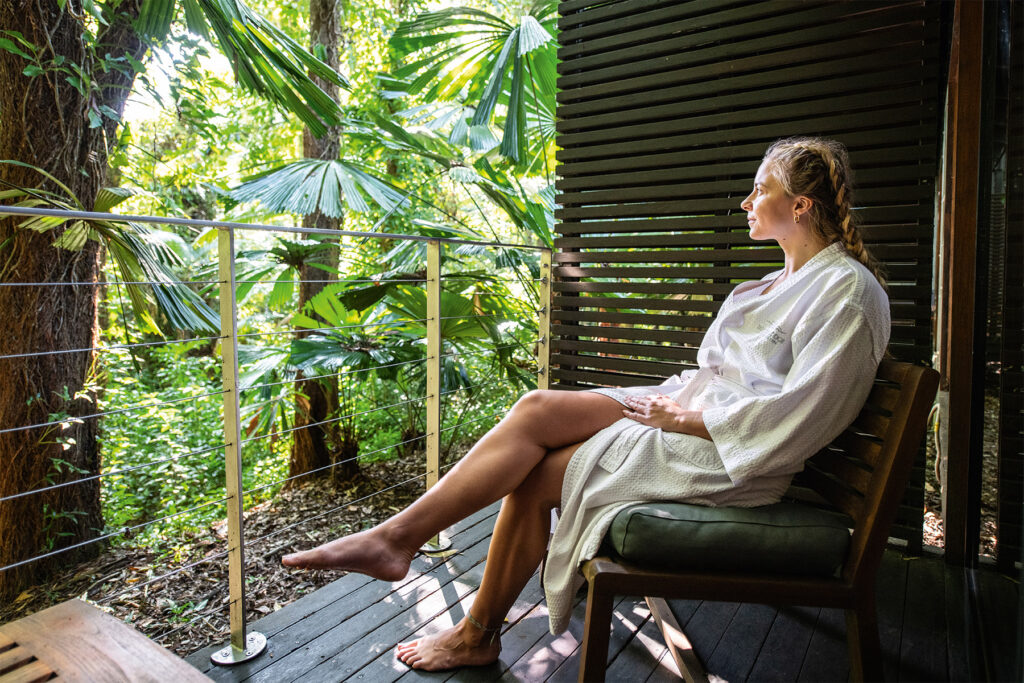
For nearly 40 years Silky Oaks Lodge has set the standard for tropical tranquillity in northern Queensland. Located a short drive from Port Douglas, on the edge of Daintree National Park, 40 cool and contemporary guest suites are dotted through the 32ha property, with king beds, an in-suite minibar, warm timber finishings, and floor-to-ceiling sliding glass doors opening to a private deck with a hammock practically strung from the trees. Some suites feature outdoor bathtubs. The only sound is the chatter of birds, and the soothing rush of the Mossman River, whose current has a magical way of carrying away life’s stresses.
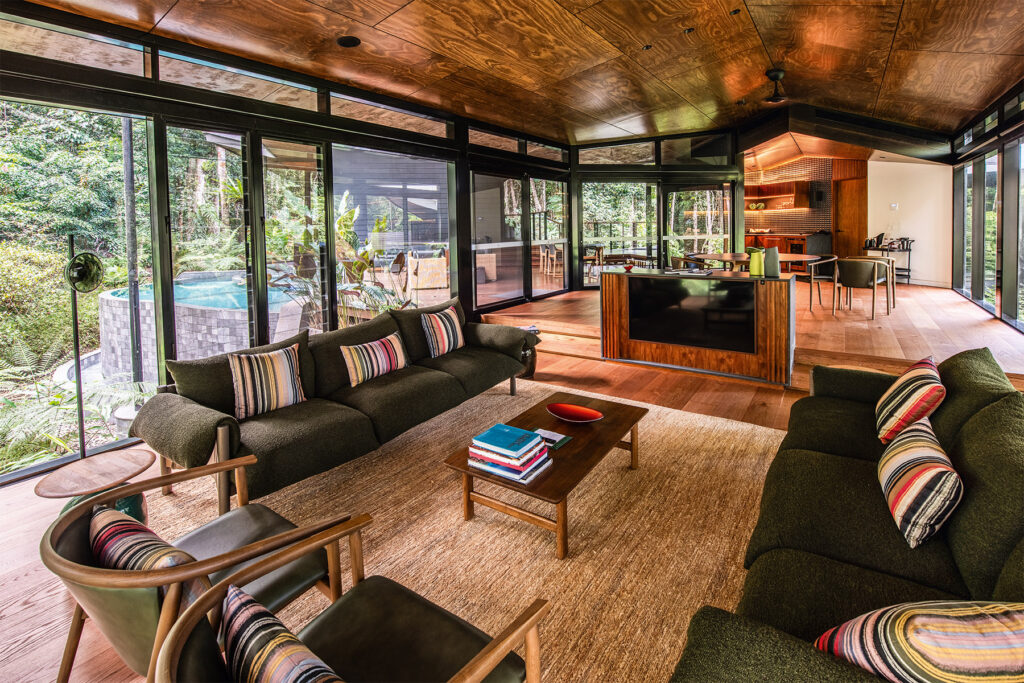
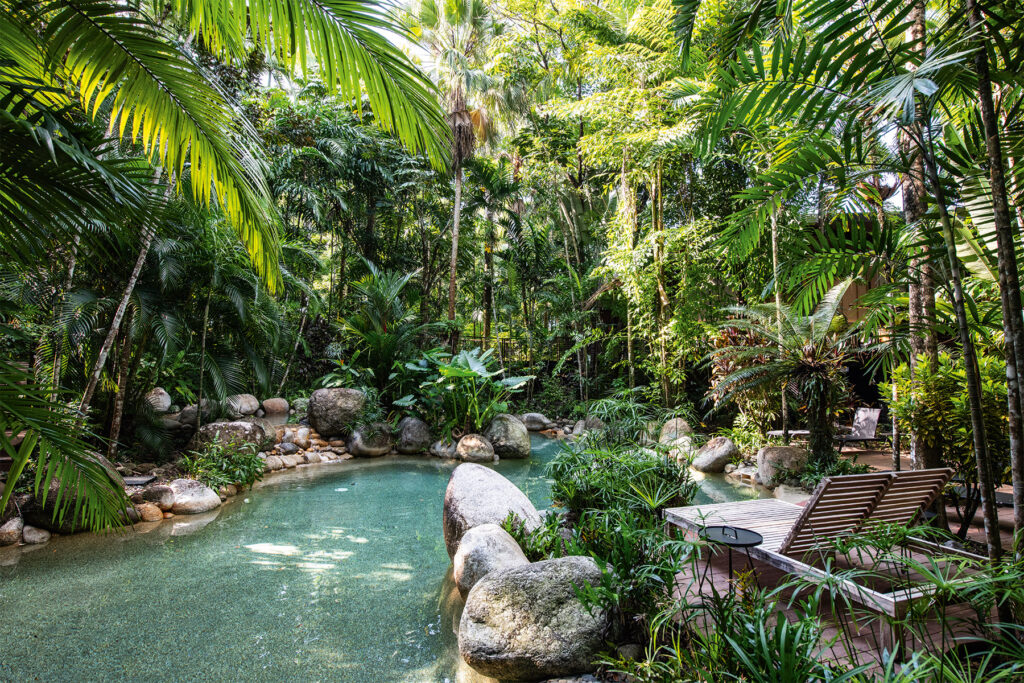
A $20 million refurbishment during the pandemic resulted in a stunning architectural redesign of the central lodge, with the high-angled ceiling hoisted into the treetops welcoming in the sights and sounds of the rainforest. You can almost reach out and touch the foliage from your table in the fine dining Treehouse Restaurant, which overlooks the river and features a seasonal menu showcasing local produce such as Daintree barramundi and coral trout, with dishes accentuated with micro herbs from the onsite kitchen garden.
Evening bar snacks accompanied by signature drinks hour are served before dinner in the aptly named Jungle Perch, which is connected to the glistening Kubirri Lounge where you can order the gin of the day and mingle with other guests as darkness encases the forest and the frogs start their nightly soundtrack.
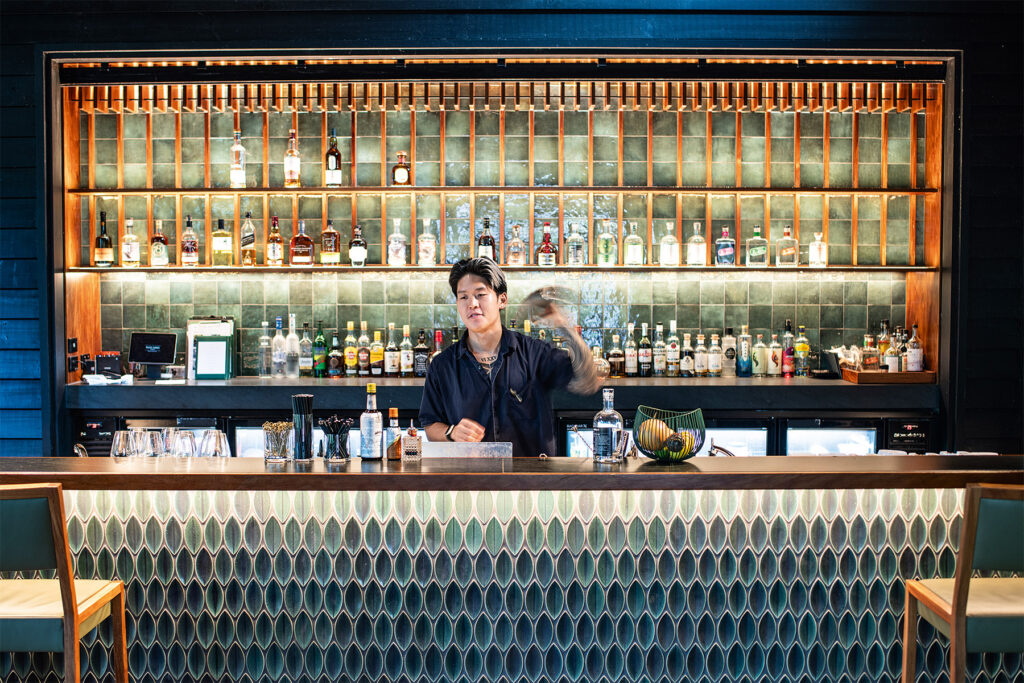
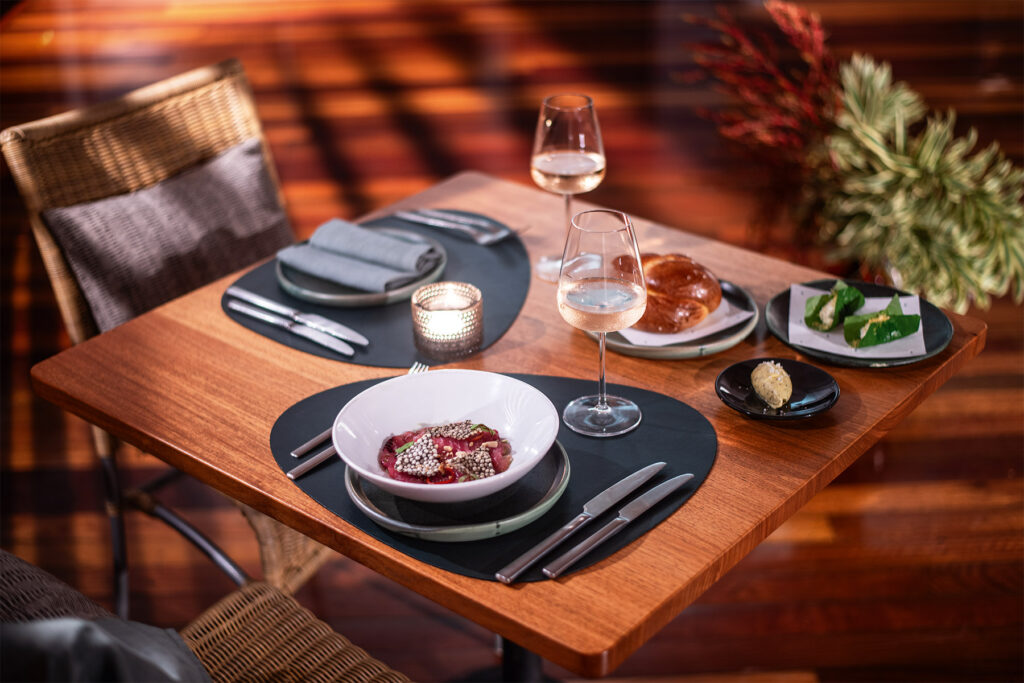
The heated lagoon pool surrounded by palm fronds and ferns is a tranquil retreat on a sunny day while the river offers an even more refreshing alternative for a plunge – or just borrow a paddleboard and go with the flow. E-bikes are on hand if you fancy a ride through the sugarcane fields, and a myriad of walking tracks lead to secret swimming spots upstream.
With Silky Oaks straddling two World Heritage-listed sites – the Wet Tropics of Queensland and the Great Barrier Reef – adventure always beckons. Most guests will dedicate at least one day to exploring the Reef, cruising aboard a luxury catamaran from Port Douglas. The lodge can also arrange a rainforest safari to Cape Tribulation, while the more intrepid can don wetsuits for a guided ‘drift-hiking’ trip down the serene (and croc-free) Mossman River, floating on a reinforced li-lo.
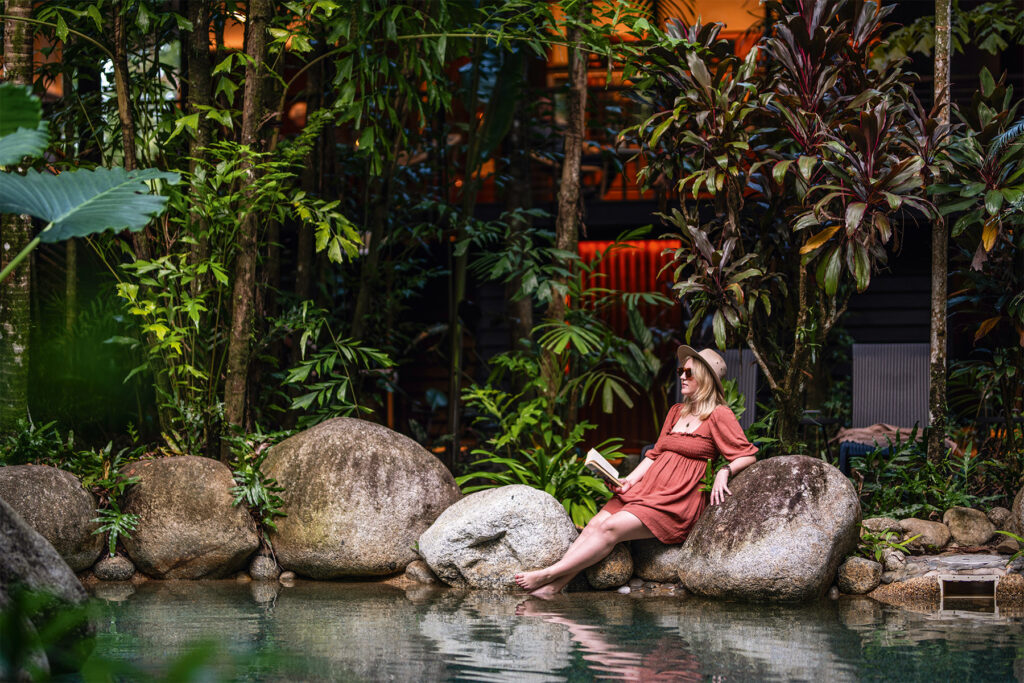
A guided Ngadiku Dreamtime walk at nearby Mossman Gorge introduces guests to the traditional lands of the Kuku Yalanji people. Local Indigenous guide Robert ‘Skip’ Lafragua begins the walk with a smoking ceremony, which helps protect from bad spirits in the rainforest. “It’s also cleansing,” he says, as guests allow the smoke to waft across their skin. “We’re all touched by the smoke. So we’re not strangers anymore.” As Skip leads the walk, he pauses to demonstrate how his people would use the enormous buttress roots of rainforest trees for shelter and communication, make bush soap, mix different shades of ochre for body painting, and harness the power of the rainforest to restore the body and purify the soul.
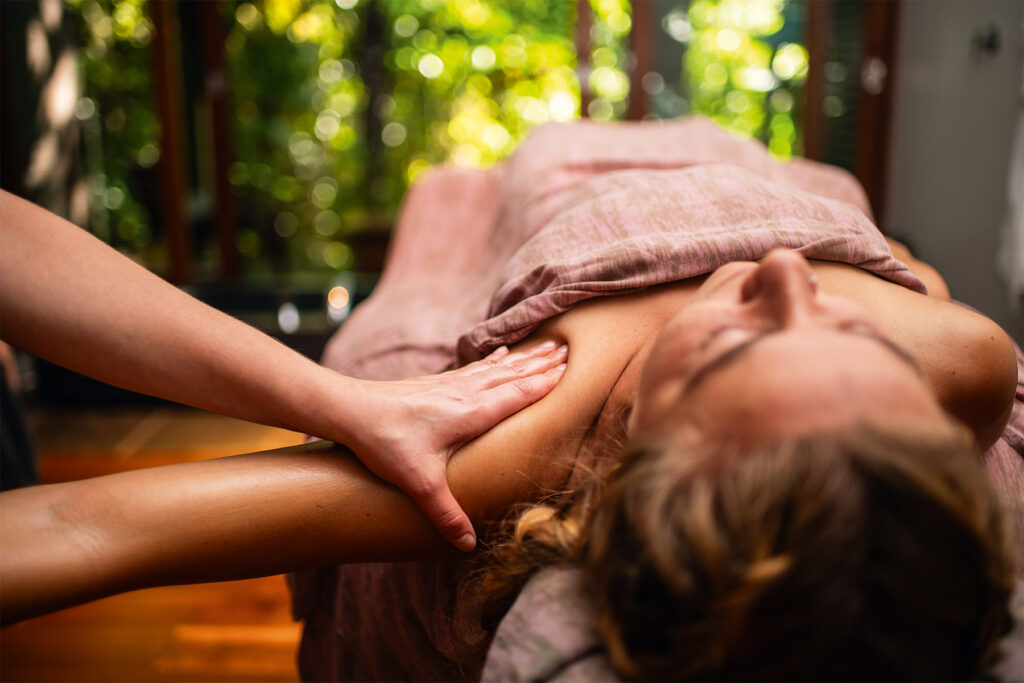
Back at Silky Oaks, rejuvenation comes almost through osmosis at the Healing Waters Spa, a calming sanctuary surrounded by greenery and streaked with dappled sunlight. Indulge in a river-stone massage or an aromatic facial treatment, or simply sink into a deep bath infused with ayurvedic herbs. However you choose to spend your time at Silky Oaks, you’re guaranteed to go home feeling lighter than air.
